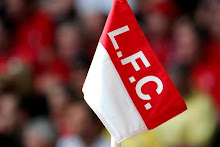
Today on FLIM 2009, we look at a biopic about a man who split the opinion of the footballing nation.
Whilst the supporter aspect of football culture has been a key theme in the majority of footy flicks, players and managers are overlooked somewhat.
In April, the BBC broadcast 'Best: His Mother's Son' which gave a harrowing insight into the alcoholism of his mother Anne. Prior to this there had not been any other film documenting the life and times of a player or manager, until now.

Brian Clough was a manager a lot of football fans loved to hate. Liverpool fans have few kind words to say about 'Old Big Head' following his comments about the Hillsborough disaster in 1989.
Indeed, very few had a good word to say about Mr Clough and his smarmy persona which was perfected to a tee by Michael Sheen in The Damned United.
The film goes back and forth between Clough's ill-fated 44 days in charge of Leeds United in 1974 and happier times as manager of Derby County in the late 1960s. In the early stages, then Derby manager Clough (Sheen) is celebrating drawing First Division heavyweights Leeds in the FA Cup. He goes above and beyond the call of duty to ensure that the Baseball Ground is as spick and span as a home to a Second Division club at the time could be.
However Clough takes measures on the border of sycophantism until Leeds manager Don Revie - then regarded as one of the best in the top flight - snubs him at every turn before, during and after the game. This sends the Derby boss into a single-handed crusade to create a team to challenge Leeds and replace them at the top of the First Division. In 1972 he achieved this and, despite unintentionally resigning at Derby, went on to join Leeds two years later via a very brief stint at Brighton.
The Damned United shows Clough up as a man hellbent on gaining revenge after Revie's snub to the point where he alienated the only true friend he had - Peter Taylor, who was his deputy at both Derby and Nottingham Forest. With this in mind, the closing titles that branded Clough as 'the greatest manager England never had' is baffling having portrayed him as a little upstart who wanted to create his own legacy that would have Leeds fans asking "Don who?" Fortunately, it never happened.
FLIM09 rating: 7/10



